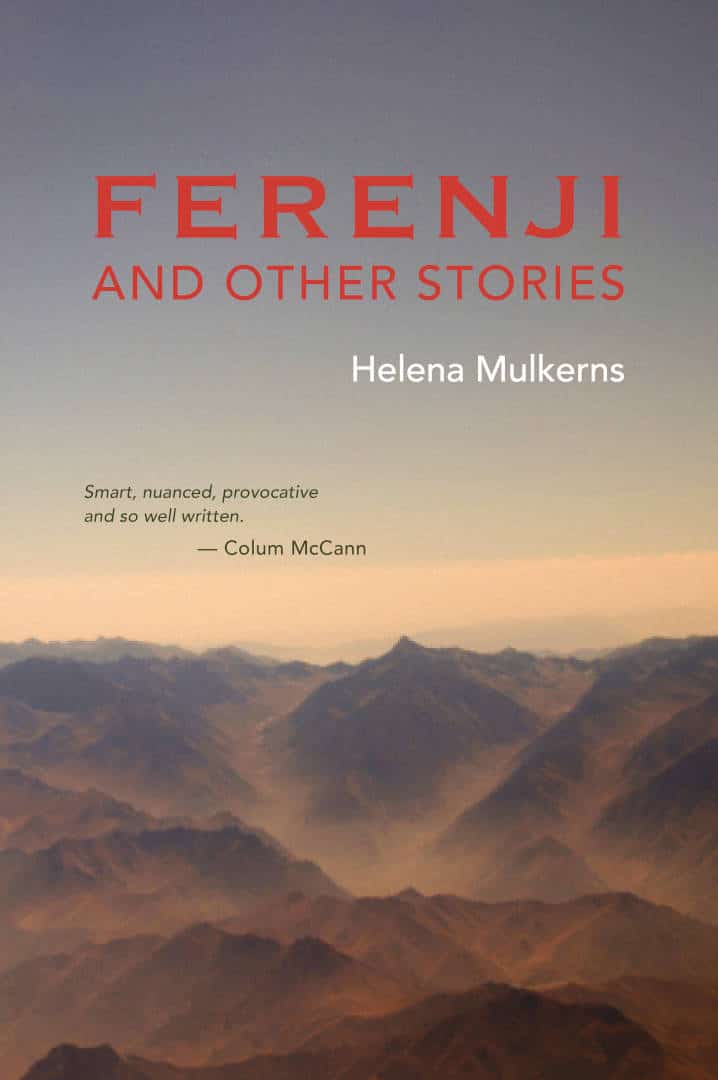Free shipping in Ireland over €25. Free worldwide shipping on orders over €50

HELENA MULKERNS’ debut short story was shortlisted for the Hennessy New Irish Writing Award. Over twenty of her stories have since been internationally anthologised, including one that was shortlisted for the Pushcart Prize and another for the Francis MacManus Short Story Award. She originally worked as a music journalist with Hot Press Magazine and went on to write for The Irish Times, The Irish Echo, Publisher’s Weekly and the The New York Times, among others. She worked as a press officer and photographer in UN Peacekeeping Operations in Central America, Africa and Afghanistan. She holds an MA in English Literature and Publishing from the National University of Ireland Galway, and has edited two anthologies: Turbulence (Tara Press, 2013) and Red Lamp Black Piano (Tara Press, 2013). In 2009 she founded The Cáca Milis Cabaret, which now takes place on an occasional basis in Dublin and Wexford. She received a bursary from the Arts Council of Ireland to complete her fiction debut, Ferenji and other Stories, a themed-collection of short fiction.
Shortlisted for the 2015 Irish Book Awards Short Story of the Year Award
Smart, nuanced, provocative and so well written.
— Colum McCann
Every evening they show up at dusk, white cotton-clad, hair covered. Some with others, some alone or with kids, walking up the hill and then around the great Acacia tree, offering incantations of their faith.
A biblical tableau: the dusty earth, the empty heavens, the stone of the church nearby with towering cross stark in contrast to their quest. They are clouds of faith, vessels of prayer, clusters of sadness. Grandmothers, mothers, widows, cowed by horror, by grief. Their whispers rise strong and timeless into the eaves of ancient branches and up the shadowing sky.
Who can say what prompts them to come here? The politicians have no fear of them. The priests remain in chapels with their books. Dry and rainy season they return to pray and dream, perhaps, of safer times; when hope once shone in now-gone eyes and the sacrifices made were true. But with time, the conflict didn’t end, just changed. So now they pray, for something beyond truth — the biggest small word in the world — peace.
As they walk they are dreaming of the dead or the absent still alive — dreaming of the bombs and guns and bullets and tanks and grenades and rockets and gas and hatchets and landmines and shrapnel and crazed warlords and gun-toting children and power-wielding leaders and government conspiracies and coups and commerce and greed and lies and madness and hunger and despair and anything else that kills their children, their husbands, their sisters, their brothers…under whatever name it’s executed, in their tongue or anyone else’s. Mostly in that of the hardest of small words — war.
They are as persistent and vulnerable as soft-winged moths that batter night after night at a window, called by light. They are slim figures in the refuge of the Acacia, yet they are strong and old and solid as the tree itself, their wood and leaf cathedral.
They follow their savaged hearts like mothers in distant plazas or rainy northern streets dreaming of children killed or harmed by any or all of the above: the universal bind of love in war.
They come each evening, with the cooling light under the survivor tree, to pray. It must be hard to return each day, to walk across the sand and up the hill time after time, year after year, in the knowledge that despite their prayer they still will die, in every ghastly way that words can tell.
It must be hard, to pray each evening for soldier men and women and boys and girls who went off to fight, dreaming in turn that they were fighting for the very thing their mothers pray for now.

ISBN: 978-1-907682-48-3 | Pages: 128 | Published: 2016
The collection delivers glimpses of life in the field — warts and all — with a vibrant blend of pathos, dark field humour and satire. Adding to the new genre of contemporary post-conflict literature, it lends a voice to the little-heard international civilian presence.